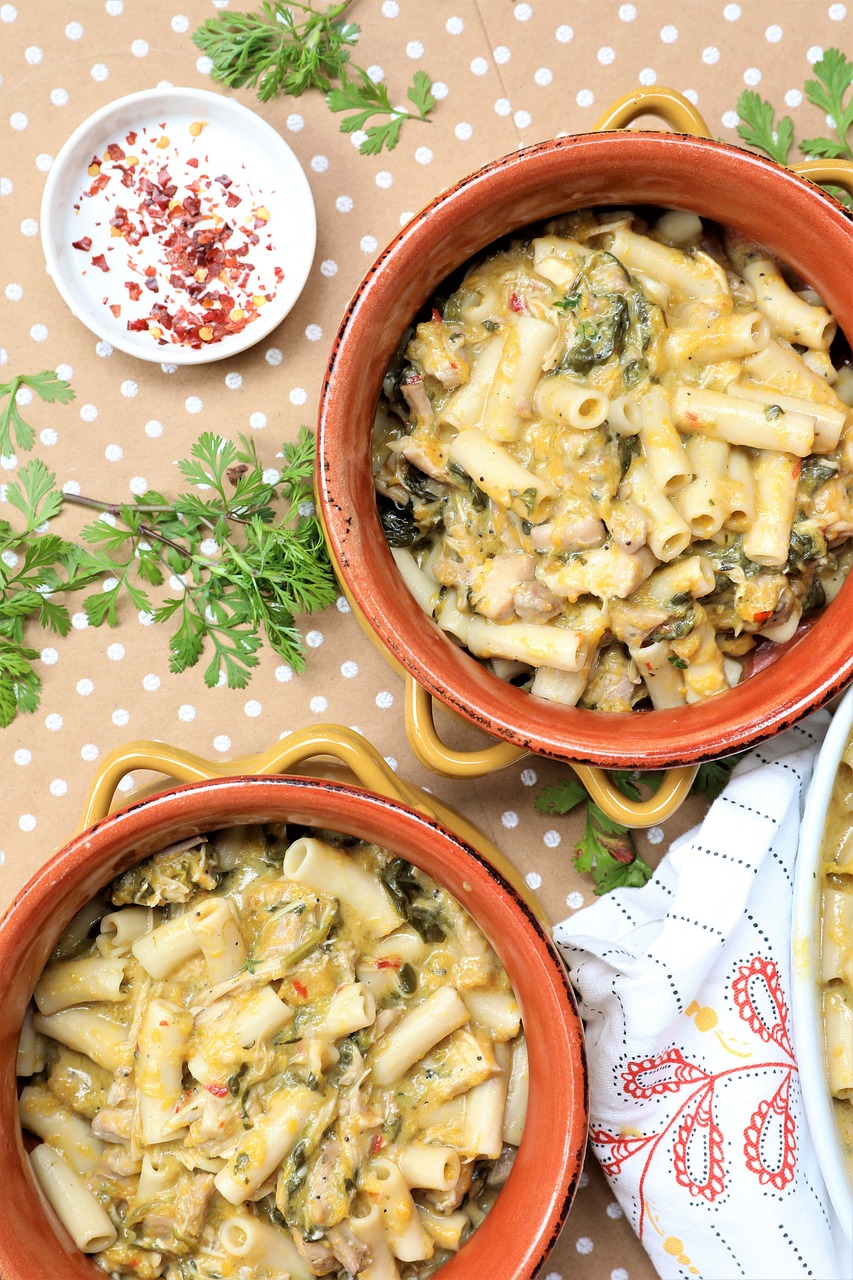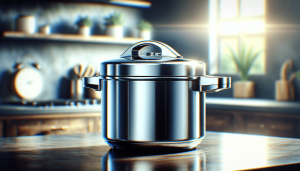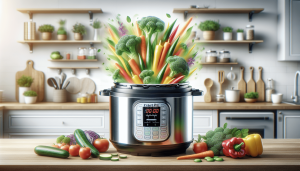Hey everyone! Welcome to “The Ultimate Guide to Instant Pot Sauté,” where we’ll dive into the world of effortless and flavorful cooking using the versatile Instant Pot. In this guide, we’ll explore the sauté function that transforms our kitchen companion into a one-stop appliance for browning, searing, and bringing out the rich, complex flavors in our favorite dishes. Let’s embark on this culinary journey together and make the most out of every meal with our trusty Instant Pot! Have you ever wondered about the magic behind the Instant Pot’s sauté function? Well, we’re here to unravel the mystery together! In this friendly and comprehensive guide, we’ll delve into the wonders of using the sauté feature on your Instant Pot and how it can revolutionize your cooking experience.
The Ultimate Guide to Instant Pot Sauté
Why Use the Sauté Function?
The Instant Pot’s sauté function offers more than just a convenient way to save time and dishes. When we sauté, we enhance the flavor profile of our dishes by searing, browning, or caramelizing ingredients before pressure cooking them. This process creates delicious and complex tastes that can’t be achieved through other cooking methods alone.
Getting Started with Sauté Mode
Setting Up
Before we dive into sautéing, we need to ensure our Instant Pot is correctly set up. Plug in your Instant Pot and select the sauté function by pressing the “Sauté” button. Most models will allow you to adjust the heat level (usually labeled as “Less,” “Normal,” or “More”), which corresponds to the temperature. For most sautéing tasks, the “Normal” setting works perfectly fine. Here’s a quick rundown of the settings:
| Heat Setting | Description |
|---|---|
| Less | Low heat, best for simmering sauces |
| Normal | Medium heat, suitable for general sauté |
| More | High heat, ideal for searing and browning |
Preheating
Just like a traditional stovetop pan, the Instant Pot needs a few minutes to preheat. Once you select your heat level, wait until the display reads “HOT.” This ensures that your ingredients cook evenly from the start.

Sauté Techniques and Tips
Using Oil
Choosing the right oil is crucial for sautéing. Oils with a high smoke point, like canola oil, peanut oil, or avocado oil, are best suited for the high temperatures we’ll be using. Add a tablespoon or two of oil to the pot once it’s preheated. Here’s a handy chart for quick reference:
| Type of Oil | Smoke Point | Suitable For |
|---|---|---|
| Olive Oil | 375°F (190°C) | Medium heat, light sautéing |
| Canola Oil | 400°F (204°C) | General sautéing |
| Avocado Oil | 520°F (271°C) | High heat, deep sautéing |
| Peanut Oil | 450°F (232°C) | High heat, frying, deep sauté |
Adding Ingredients
When adding ingredients, make sure to spread them out evenly in the bottom of the pot. Overcrowding can cause them to steam rather than sauté, preventing that perfect browning we’re aiming for.
If we’re working with meat, it’s often beneficial to pat it dry with paper towels before adding it to the pot. Wet surfaces can hinder the searing process, leading to steaming instead of browning.
Stirring and Timing
Keep ingredients moving by stirring them regularly, but don’t overdo it. Allowing onions to sit still for a moment in the pot can let them caramelize more effectively. Generally, sautéing takes about 5-10 minutes, but this will vary depending on what and how much we’re cooking.
Common Sautéing Uses
Browning Meat
Browning meat before pressure cooking locks in flavors and juices. We usually do this with beef, chicken, pork, or even lamb. Here’s a guide applicable for different meats:
| Meat Type | Sauté Time | Tips |
|---|---|---|
| Beef | 5-7 minutes per side | Pat dry, season with salt and pepper, avoid overcrowding |
| Chicken | 4-6 minutes per side | Skin-on pieces work well, ensure skin is crispy |
| Pork | 3-5 minutes per side | Use a thicker cut like a pork chop, cook until golden brown |
| Lamb | 6-8 minutes per side | Best with bone-in cuts, marinate for extra flavor |
Sautéing Vegetables
Vegetables like onions, garlic, bell peppers, and carrots can be sautéed to enhance their natural sweetness and depth of flavor. For a balanced sauté:
| Vegetable | Sauté Time | Tips |
|---|---|---|
| Onions | 5-7 minutes | Cook until translucent or caramelized |
| Garlic | 1-2 minutes | Add towards the end to prevent burning |
| Bell Peppers | 4-6 minutes | Slice evenly, stir frequently |
| Carrots | 5-6 minutes | Cut into uniform pieces |
Making Sauces
We can also use the sauté function to create delicious sauces right in the Instant Pot. Whether it’s a marinara sauce, a gravy, or a curry base, sautéing ingredients like tomatoes, onions, and spices elevates the sauce’s flavors.

Troubleshooting Common Issues
Burn Notice
Sometimes, we might encounter a burn notice on the Instant Pot display. This usually occurs when bits of food are stuck to the bottom of the pot. To avoid this, always deglaze the pot after sautéing by adding a bit of liquid (like broth or water) and scraping up any browned bits with a wooden spoon.
Uneven Browning
If the meat or vegetables are browning unevenly, it’s likely because they’re overcrowded. Cook ingredients in batches if necessary and ensure the pot is not overloaded.
Sticking
Sticking can be minimized by preheating the pot adequately and using enough oil. Additionally, avoid moving food around too much during the initial few minutes of cooking, especially proteins, to allow them to form a crust and naturally release from the pot’s surface.
Recipe Ideas Using Instant Pot Sauté
Sautéed Chicken with Garlic and Herbs
Ingredients:
- 4 chicken thighs, skin-on
- 2 tbsp canola oil
- 3 garlic cloves, minced
- 1 tsp dried thyme
- 1 tsp dried rosemary
- Salt and pepper to taste
Instructions:
- Preheat the Instant Pot on the “More” sauté setting.
- Add canola oil and let it heat until shimmering.
- Season chicken thighs with salt and pepper.
- Place chicken thighs skin-side down in the pot and cook for 4-6 minutes until the skin is golden brown.
- Flip the chicken and cook for another 4-6 minutes.
- Add garlic, thyme, and rosemary. Sauté for an additional 1-2 minutes.
- If desired, deglaze the pot with 1/4 cup of chicken broth.
- Proceed with the remaining cooking as desired or serve immediately.
Vegetable Stir Fry
Ingredients:
- 2 tbsp avocado oil
- 1 onion, sliced
- 2 bell peppers, sliced
- 2 carrots, julienned
- 1 broccoli head, cut into florets
- 3 garlic cloves, minced
- 2 tbsp soy sauce
- 1 tbsp sesame oil
Instructions:
- Preheat the Instant Pot on “Normal” sauté setting.
- Add avocado oil and heat until shimmering.
- Add onion, bell peppers, and carrots. Sauté for 5-6 minutes until slightly tender.
- Add broccoli and garlic. Sauté for another 3-4 minutes.
- Stir in soy sauce and sesame oil. Cook for an additional 2 minutes.
- Serve hot, optionally over rice or noodles.
Beef Stew Base
Ingredients:
- 2 lbs beef stew meat, cut into cubes
- 2 tbsp canola oil
- 1 onion, diced
- 2 cups beef broth
- 2 carrots, chopped
- 3 potatoes, diced
- 3 garlic cloves, minced
- Salt and pepper to taste
Instructions:
- Preheat the Instant Pot on “More” sauté setting.
- Add canola oil and heat until shimmering.
- Season beef with salt and pepper. Brown beef in batches, 5-7 minutes per batch, and remove to a plate.
- Add onion to the pot and sauté for 5-7 minutes until translucent.
- Add garlic and sauté for another 1-2 minutes.
- Return beef to the pot. Add carrots, potatoes, and beef broth.
- Proceed with pressure cooking or slow cooking according to desired recipe.

Cleaning and Maintenance
Post-Sauté Cleaning
After using the sauté function, it’s important to clean the Instant Pot thoroughly. Any residue left behind can affect the performance of subsequent cooking cycles and may trigger a burn notice.
- Remove the inner pot and wash it with warm, soapy water. For stubborn stains, a soft sponge or nylon scrubber works wonders.
- Wipe down the exterior and the heating element carefully but thoroughly.
Routine Maintenance
Regular maintenance can extend the life of our Instant Pot and ensure it performs optimally.
- Make sure the sealing ring is clean and positioned correctly after every use.
- Clean the steam release valve and condensation collector regularly.
- Perform a ‘deep clean’ periodically by soaking the inner pot in warm soapy water and scrubbing any remaining residues.
Conclusion
The Instant Pot’s sauté function truly is a game-changer in the kitchen. From browning meat and caramelizing onions to creating flavorful sauces, the possibilities are endless. By understanding how to properly use and maintain this feature, we can elevate our cooking to new heights, adding depth and dimension to our meals with minimal hassle.
We hope this guide has been a helpful resource for you. Next time you’re ready to cook, remember these tips and tricks and sauté away with confidence! Happy cooking, everyone!



